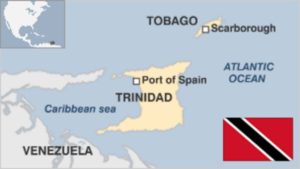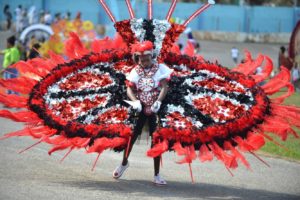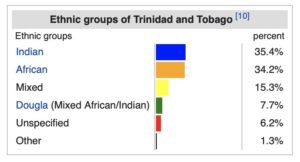|
Getting your Trinity Audio player ready...
|
Reading Time 5 mins
 Several amazing things happened when T&T was a British colony and after. Pre-Independence Calypso came about primarily as a way for the masses, especially those of African descent, to voice their protest against social, racial, and political injustices in that era. Its current primary use as a form of entertainment is a post-independence transition in a country that has the highest per capita incomes in the Caribbean and one of the highest in the Western Hemisphere.
Several amazing things happened when T&T was a British colony and after. Pre-Independence Calypso came about primarily as a way for the masses, especially those of African descent, to voice their protest against social, racial, and political injustices in that era. Its current primary use as a form of entertainment is a post-independence transition in a country that has the highest per capita incomes in the Caribbean and one of the highest in the Western Hemisphere. To emphasize the point about the interweaving of many cultural traditions into the Trini fabric, I will look at just one of the cultural contributors to our unique melting pot that is routinely excluded in our artistic expressions. Let’s look at the last names of four members of the current Trinidad & Tobago soccer team Garcia, Gonzales, Molino, and Gomez, none of whom look “Spanish” or “Venezuelan”; their parents intermarried. My mother’s sister married a man whose last name was Gonzales. These citizens have blended into the culture and are no longer seen as “Venezuelans.” We had friends named Hospedales who intermarried with people of both African and Indian descent. They are now Trinbagonians like everybody else. Yet statistics on Venezuelans now only track recent immigrants or asylum seekers. And, many songs that attempt to capture our multicultural society do not acknowledge Trinbagonians of Venezuelan and other ‘minority’ backgrounds as essential to the national discourse.
‘The creation of steelband and calypso as an expression of our experience was a triumph of the human spirit over adversity and a real-life example of using bitter lemons to make delicious lemonade. We found a way to express ourselves with a new type of song and a new type of instrument. A leap in our cultural evolution that takes some countries and cultures centuries. We can embrace this triumph and celebrate it because it is ours.’

I’m thinking forward to the next Kaiso, Calypso, Soca, or Chutney Soca “hit.” Notwithstanding the fantastic musical talent of the writers, composers, and singers of these vibrant musical forms, will it reflect our unique melting pot, or will it be more of the same? Will it reflect the importance of each individual regardless of the size of his/her cultural group, or will it simply be politically correct by catering to the larger groups–like the politicians do—while being socially and culturally incorrect by ignoring true cultural inclusivity?


